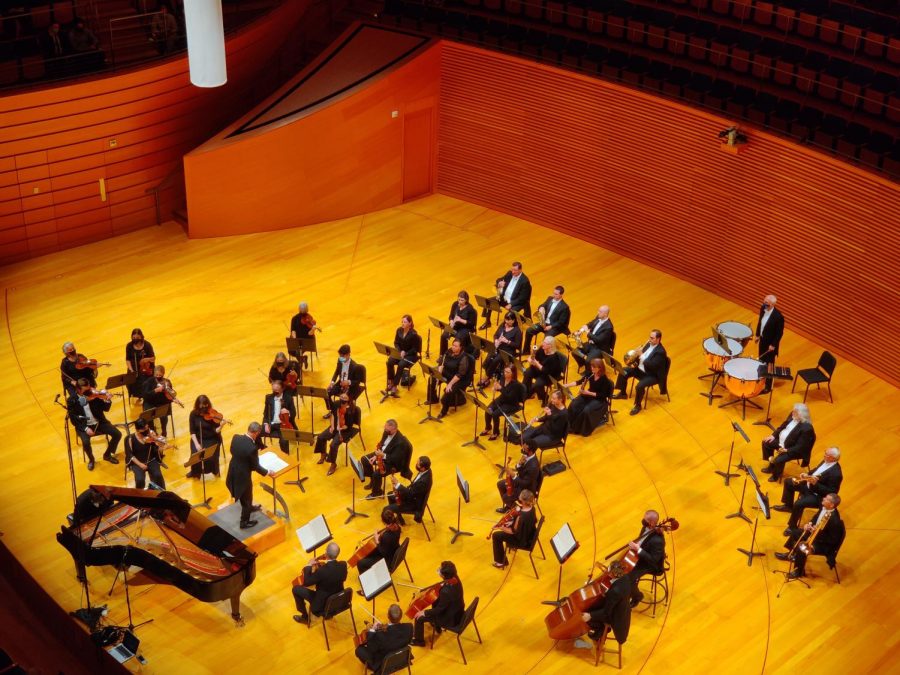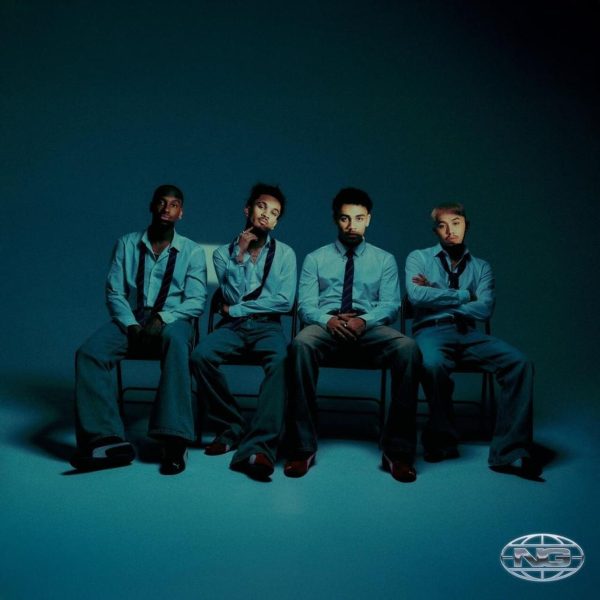Pianist stuns in elegant and meaningful performance
The Park University International Center for Music and the Kansas City Chamber Orchestra celebrated Kenny Broberg with a concert on Sept. 14.
Broberg, a graduate student studying music at Park University, was featured because he won the 2021 American Pianists Awards in Indianapolis. The concert was called “Kansas City Celebrates Kenny!” and was hosted in Helzberg Hall, located in the Kauffman Center for the Performing Arts.
It was one of the most elegant and meaningful artistic performances I have ever seen as a student. I have tried to use all the words in my head to describe the magnificence of the concert, but once I compare it to it, the words lose all their luster and remain pale.
The light was dimmed, the stage was filled with expectant eyes, there was silence and the hazy sound of voices tinkled. The first piano solo Broberg played was the pinnacle of Beethoven’s piano sonatas from 1798 to early 1799, “Piano Sonata No. 8 in C Minor, Op. 13 Pathetique.” I think the theme of “Pathetique” is like a patient who has been notified of an incurable terminal illness. The beginning of the first movement is like a bolt out of the blue, as if the patient cannot accept this diagnosis. After the emotional response, the patient enters the second movement – acceptance. He recalls the memorable years he has spent, although sadness lingers in his heart. In the third movement, the patient feels that he cannot live only in memories, and rushes to a new life, allowing himself to spend the rest of the few years fulfilling every day, leaving the world in peace, and the whole song ends.
Next, Broberg showed us two well-known piano works in the Fairy Tales series created by Medtner. Among them, “Allegro con espresso, Op.20 No.1” has a more repetitive melody. Even so, Broberg had different expressions in his emotion. Through these repetitions, the music can move. It is an indispensable part of the music. Broberg is truly clear about his position in the music and the emotional connotation he expresses.
After that, Broberg presented us with another series by Meitner – Forgotten Melodies – namely “Primavera, Op. 39 No.3” and “Danza Festiva, Op. 38 No.3.”
Finally, he chose Liszt’s “Après une lecture du Dante Fantasia Quasi” as the ending song of the first half. The ending of this song is played with both hands in the high range. The tremolo of the right hand is like a starry sky, and the left hand reproduces the warm and bright melody that was presented before, like a reappearance of heaven. After that, it reached the peak of the whole song’s emotions, and the music showed unprecedented splendor. The whole song ended in a magnificent sound, declaring that darkness will eventually be illuminated by the light.
After a half hour intermission, the stage layout was no longer a single grand piano, but an entire orchestra. We then enjoyed the Kansas City Chamber Orchestra’s “Overture to Egmont” that was powerful and magnificent.
Finally, Broberg returned to the stage and played the last song, “Concerto for Piano in E minor, Op.11” with the orchestra. This is a hymn of spring: pure, transparent, warm, and prosperous. It is about life, freedom, and love for life. From chapter one to chapter three I smiled, but tears filled my eyes because I felt the greatness of nature and the beauty of life. The orchestra and the piano were completely integrated, one after another, and together they outlined a huge picture. Praise Chopin, praise Broberg and praise the whole orchestra; they bring the classics to us.
For nearly two hours, the performers showed no sense of exhaustion, as if they were immersed in the music. After listening to this concert, I found myself increasingly fond of musical instruments. Although it is not as avant-garde and hot as pop music, its high pitch, its euphemism and its rhythm all reflect the long history and civilization of this musical country.
Music has a grand appeal that I had never thought before. It is a kind of learning and a kind of communication of the heart. After getting used to the sound of pop music, I learned to listen to and appreciate elegant music, which is undoubtedly a big enjoyment. In the busy and tense study life, we really should find some time to listen to music, appreciate art and enrich ourselves.
Your donation will support the student journalists of Park University. Your contribution will allow us to cover our annual website hosting costs, freeing up other funds for equipment, printing and training.









